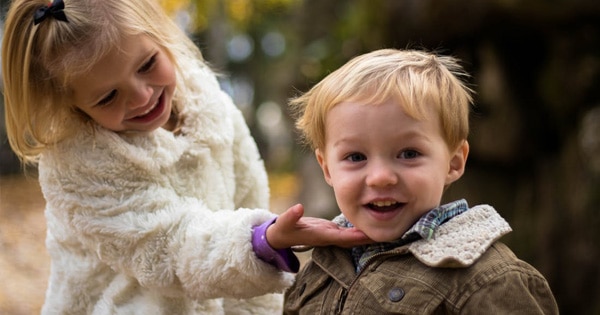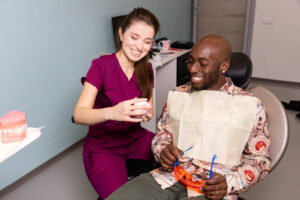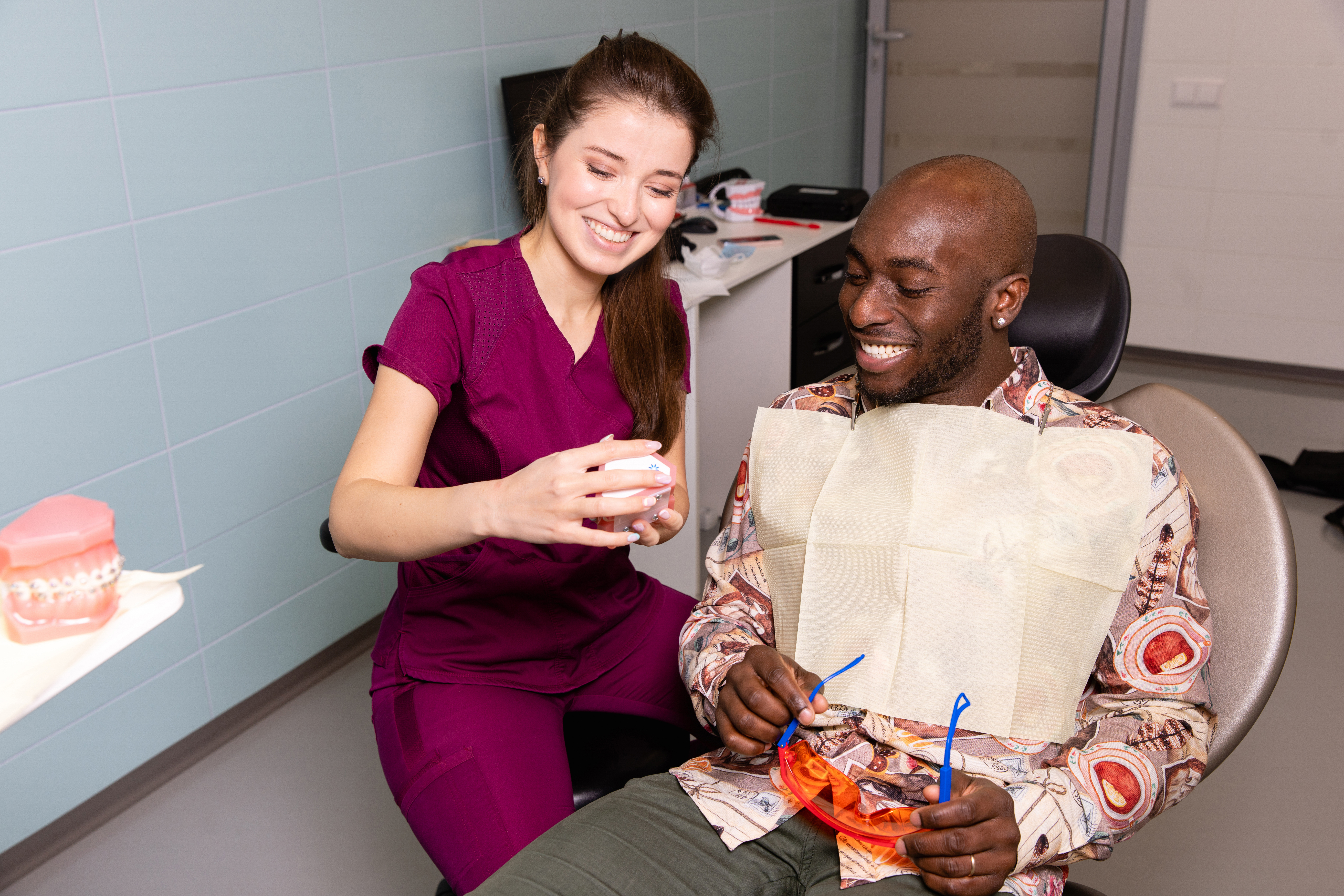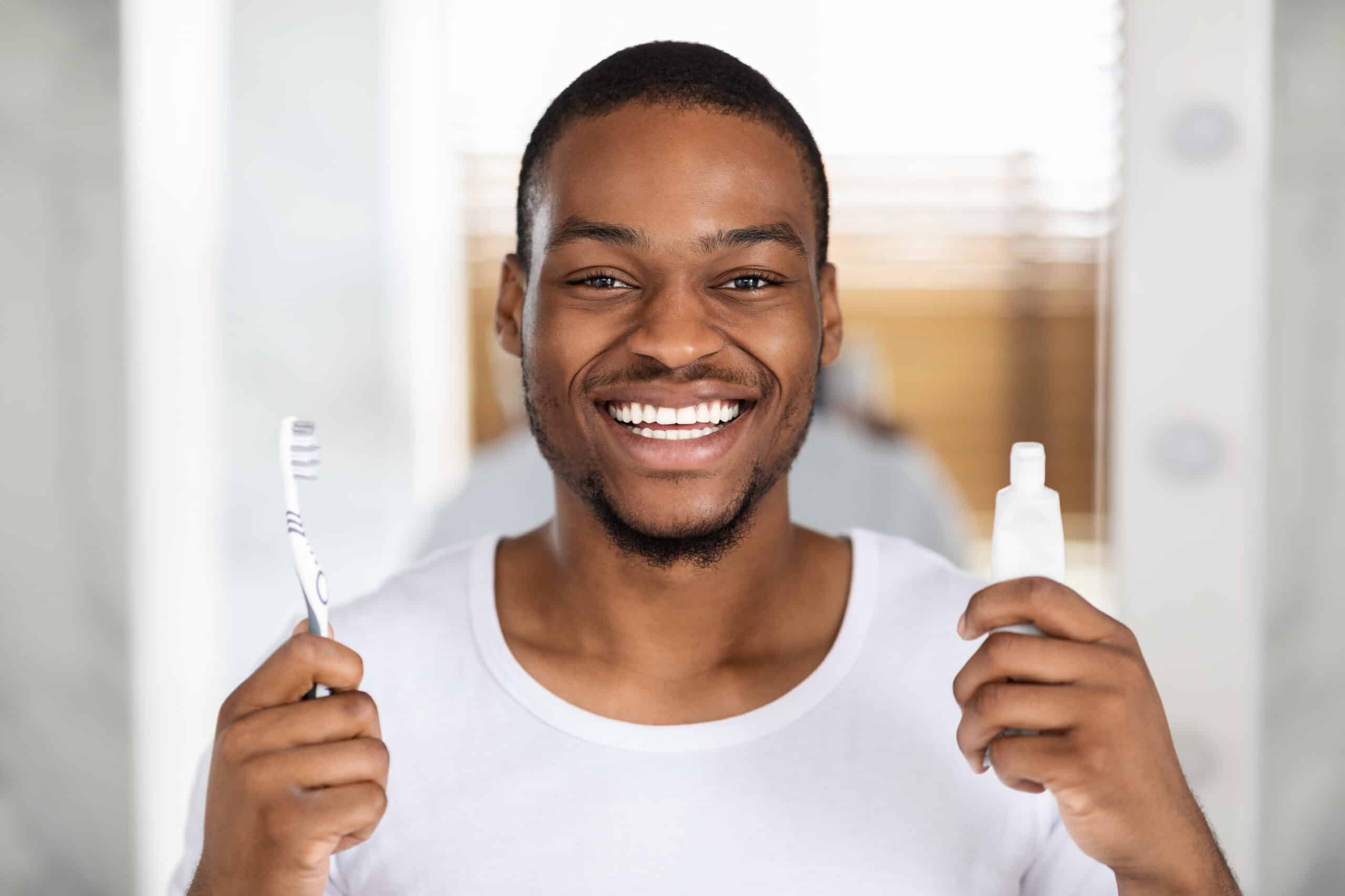If you’ve noticed more baby bumps around town these days, what you’re seeing may be the result of the Christmas blackout. So, in preparation for the impending September/October baby boom, we thought we’d look at some of the best ways to care for your baby’s teeth.
In most cases, the first teeth to arrive will be the front bottom ones, but don’t be surprised if that’s not the case. Like everything else about babies, each one is different.
You should start cleaning your baby’s teeth as soon as they emerge. The easiest way is with a cloth or piece of gauze. Just wrap your finger around it, dab a bit of water on it and gently massage the teeth and gums.
Like your own teeth, you should clean your baby’s teeth twice a day (morning and evening). Don’t worry if they don’t like it at first – keep at it and they’ll eventually learn to enjoy the experience. You can make a game of it if you like. Remember not to apply too much pressure as you clean your baby’s teeth – the teething process makes their gums sensitive to touch. A light wiping is all they need.
As more of their teeth start to come in, you can switch to a baby toothbrush. Pick one with soft, round-ended bristles of differing lengths so you can reach every part of their mouths easily and comfortably. And be sure to check the packaging to see what age range the brush is designed for.
Toothpastes with fluoride should be introduced around age two or whenever your child stops swallowing their tooth paste.
How else can I protect my baby’s teeth?
- Try to avoid sugary foods as much as possible. When choosing baby food, look for sugar-free options. If you want to give your baby a bite between meals, choose savory snacks like cheese or vegetables.
- Keep them away from fruit juices as much as possible, as they’re often loaded with sugar. Once you start adding beverages to their diet (beyond breast milk or formula), stick to water.
- Pacifiers use should be discontinued around age 2 to avoid problems with the position of the developing baby teeth and jaws.
- It is recommended that your baby’s first dental appointment be around six months after the first tooth erupts so we can see what’s going on in your baby’s mouth and put them (and you) on the road to a healthy mouth. If you have questions, talk to your dentist about the timing of this appointment.








